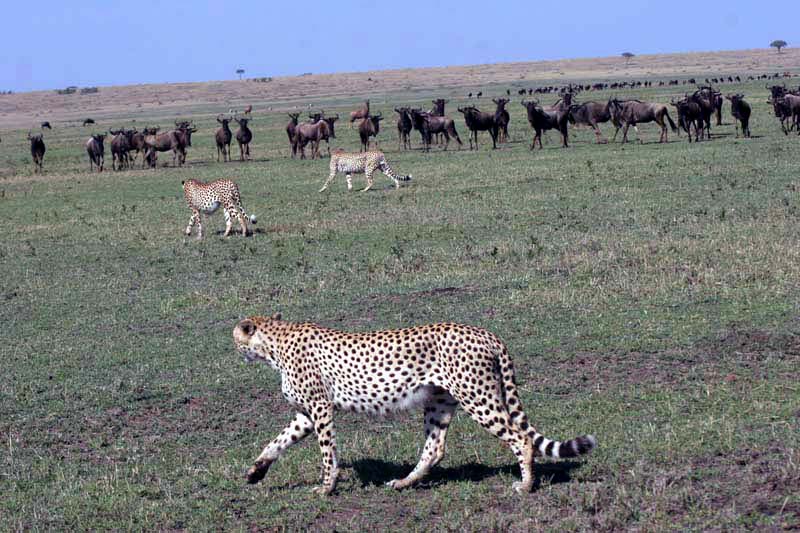
While this story is dated 15 November 2013, it just showed up on a search of the BBC website. In summary, a pair of cheetahs had been preying on goats in north-east Kenya. The man who owns the goats decided to do something about it. Along with three other men, he waited until the heat of the midday, tracked them down and captured them by hand when the cheetahs grew too tired to run. He then turned them over – alive – to the Kenya Wildlife Service. His explanation was simple, he wanted to stop the cheetahs and receive compensation for the goats he lost.
I find two elements of this story fascinating. These men knew that cheetahs have limited stamina, at least due to their inability to dissipate heat. They also knew that cheetahs are not physically powerful animals – relying, instead, on their speed and agility to capture prey. This is a reminder that those who live in close proximity with wildlife often develop real knowledge and understanding of the lives of their animals neighbors.
But it’s the second part that is most interesting – this man did not kill these cheetahs! He could have easily killed them and still accomplish his primary goals. And we certainly know that, for thousands of years, people have responded to livestock predation by killing the predators. The article does not say anything about why the goat owner chose to capture these cheetahs, rather than kill them. Perhaps he admires these beautifully adapted hunters, despite their predations on his goats. It may be a poor example, but I admire the incredible engineering of wasps – despite their painful stings.
But Safari Professionals wonders if there is another explanation. Perhaps, some people are beginning to trust that the Kenya Wildlife Service can and, more importantly, will assist them when there are conflicts with wildlife.

